
Hey y’all! Thanks so much for stopping by. My name is Laura and I am an Elementary School Counselor turned Curriculum Writer. At my precious school in Nashville, TN, 97% of my students were living in …
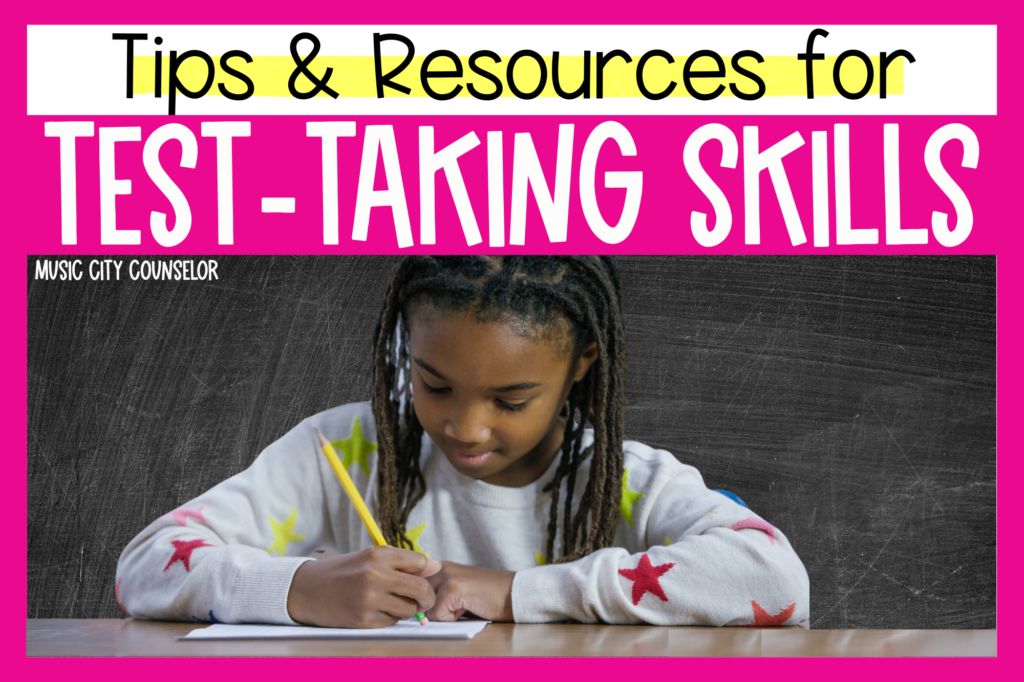
It’s almost that time of year. The one that students, teachers, and administrators dread. The couple of weeks when nothing else seems to matter, and everything gets put on hold. Educators, you know what I’m talking about. TESTING SEASON!
Standardized tests can make even the most calm, cool, and collected students and teachers feel on edge, nervous, and anxious. So, in the weeks leading up to the big test, I prioritize checking in with students, exploring their feelings and worries, and teaching them practical test-taking tips. I make sure to teach a test prep classroom lesson to all of my 3rd and 4th grade classes, and also use teacher referrals to form a small group for those students that need extra, individualized support. Providing these interventions and supports for students can really make all of the difference in their readiness, mindset, and performance on standardized tests!
In this post, I’ll share my best tips, favorite activities, and story books to support students with standardized tests.

Taking the time to review practical test-taking tips with students can boost their confidence, make them feel more in control of their testing experience, and improve their performance! Here are my best tips for you:
To teach my kiddos these helpful strategies, I love using this test-taking tips lesson! It teaches students 16 test-taking tips through an engaging story, beautiful posters, discussion cards, and activities!

Read on to learn about two of my favorite test-taking activities that are sure to be a hit with your students!

Who doesn’t love a fun game of BINGO? To make test prep fun and memorable for students (and educators!), I created this Test-Taking Tips BINGO game. It lets students review 24 test-taking skills, while having fun! I love playing this game in classroom lessons and with my test prep small groups.

Another fun test prep idea is this Test-Taking Tips Color by Code Activity. This activity combines a healthy coping skill for test anxiety (coloring!) with reviewing 24 test-taking tips. I love using this resource at the end of my classroom lessons and in my test prep small groups. I also love sending a copy of this activity home with all of my 3rd and 4th graders, and giving them a SMARTIES candy when they turn it back into me. Then, I make a big hallway display with all of their creations. This really boosts morale before the big test, and helps my students review test-taking tips at the same time!
If you know me, you know that I LOVE to use stories in my counseling practice. Stories engage students, help them feel not so alone in their feelings and experiences, and teach relatable, powerful lessons. Here are my favorite books that teach test-taking skills to elementary students:
(Amazon Affiliate Links)
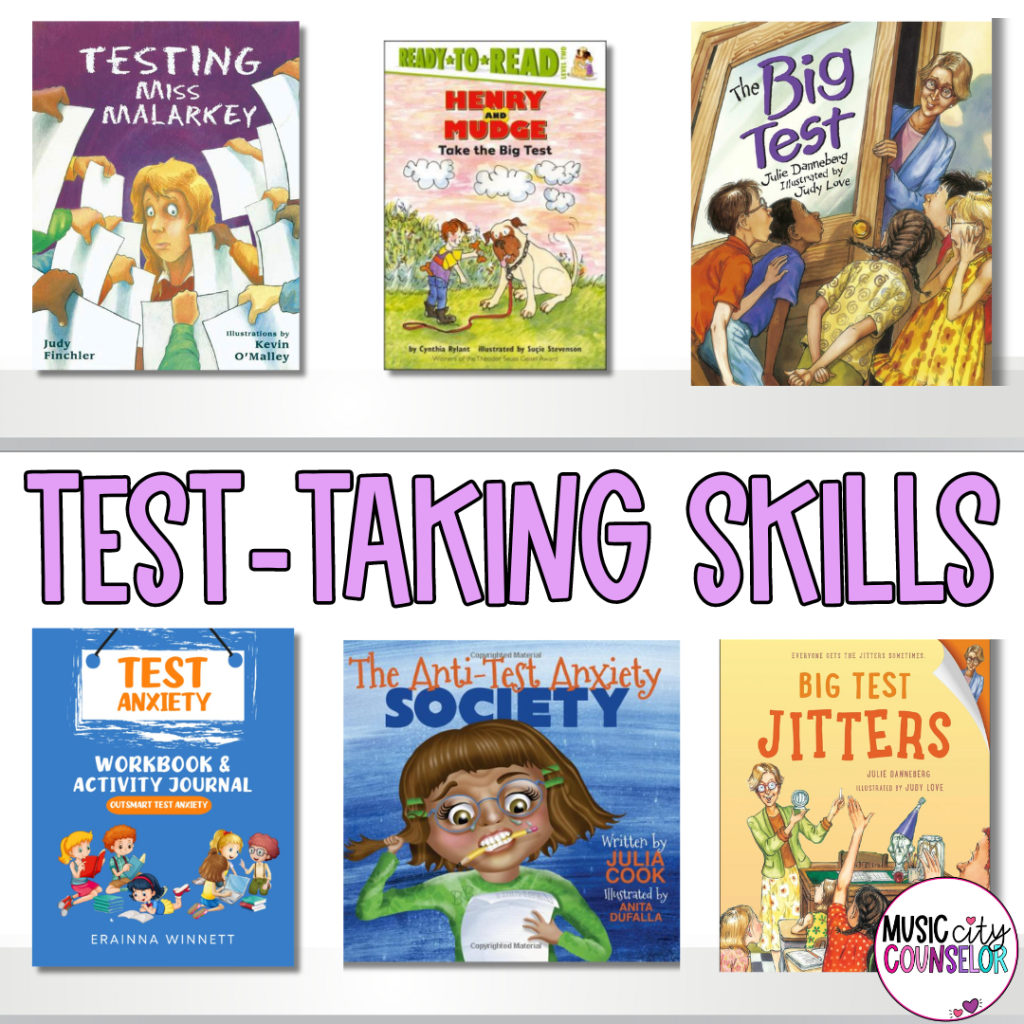
Now, I’ll review my top 3 below for you!
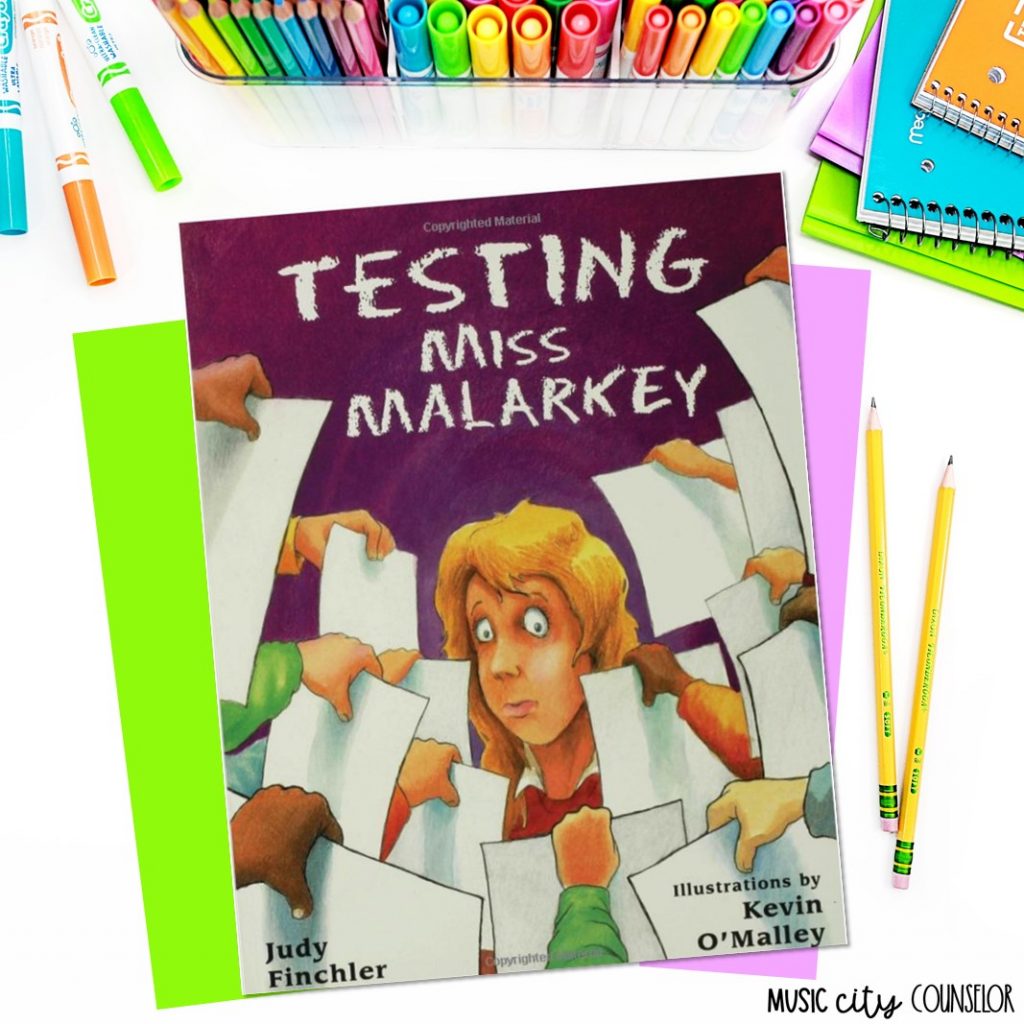
The new school year brings testing to all schools, and Miss Malarkey’s class is no exception to the rule. All school staff, teachers, and even parents are helping to prepare for THE TEST. The whole school is focusing on this test. Even though the teachers, school staff, and other grown-ups tell the children not to worry, they’re acting pretty weird. The gym teacher teaches calming meditation and yoga instead of the usual games and sports in PE class. Parents are making their children do pop quizzes on the bedtime stories they read in the evenings. The cafeteria is even serving “brain food” for lunch. The students are perplexed! They start to think that maybe this upcoming test is more important than the grown-ups are saying. I love how this book pokes fun at standardized testing and has a humorous outlook on the whole process, but still addresses test anxiety as a very real thing for everyone involved!
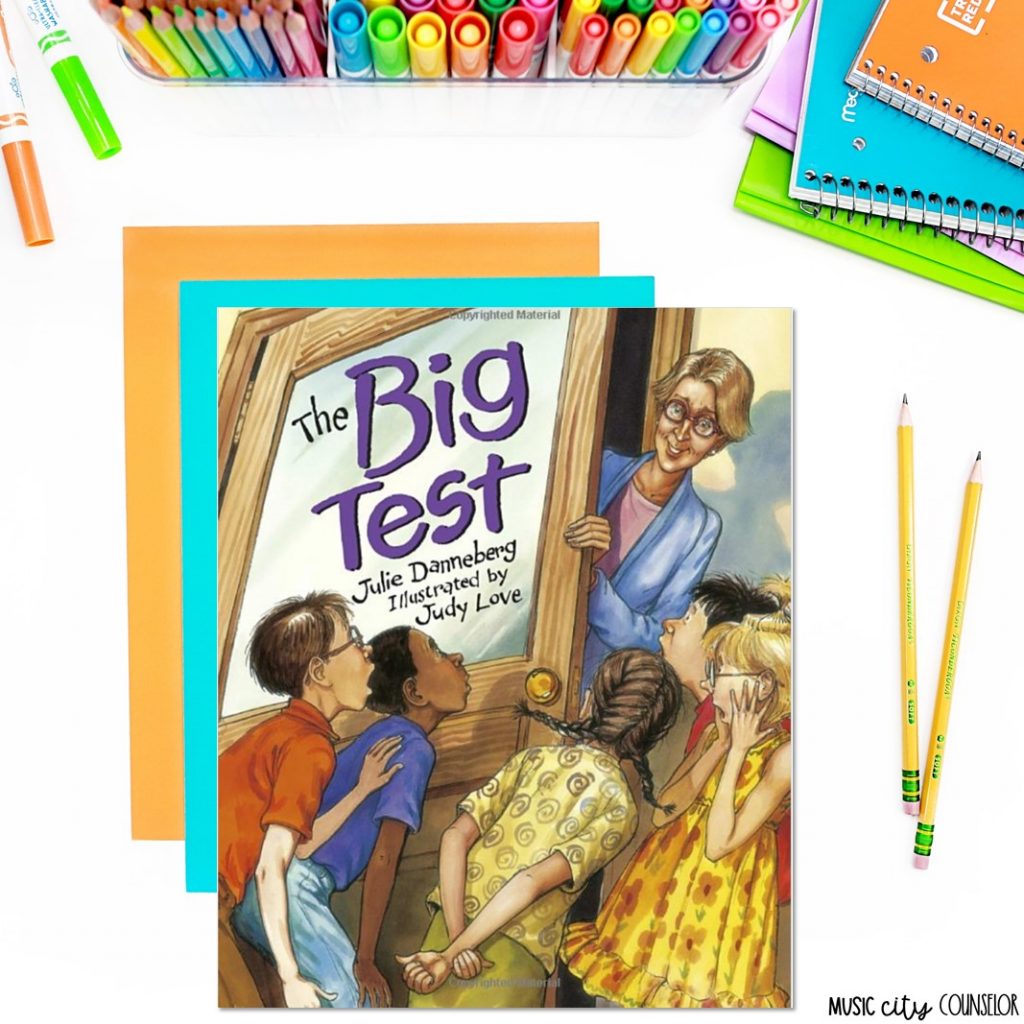
Mrs. Hartwell is getting her class ready to take the Big Test. Knowing they have studied and are prepared for the test, she asks her students to practice test-taking strategies like sitting quietly, filling in the bubbles, and following the directions. Mrs. Hartwell repeatedly tells them they must remember to show what they know….before the timer goes off! As her students grow increasingly anxious about the Big Test and frequently end up in the nurse’s office, Mrs. Hartwell begins to see that she needs to teach her students how to relax, too! Mrs. Hartwell knows just what to do: she throws a huge party to help her students feel better about the Big Test! This book sheds light on how teachers, in the interest of preparing students for a test, end up creating a lot of anxiety in students. It would be a great one to read just before a surprise test party or to build morale among students and teachers!
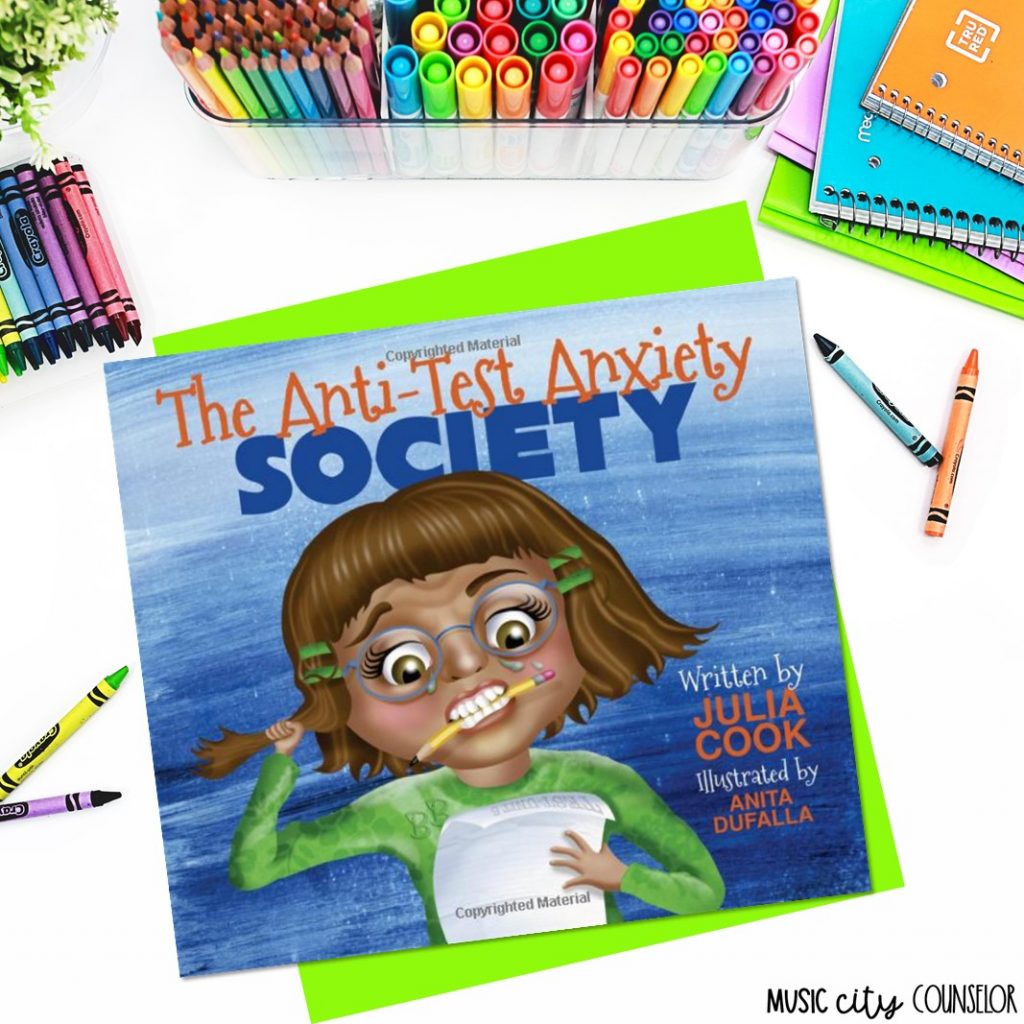
Bertha Billingsworth (BB for short) is an energetic and positive girl…until there is a test to take. For her, the word test stands for Terrible Every Single Time because that’s how she sees them: TERRIBLE! BB’s teacher recognizes this and invites her to become a member of the Anti-Test Anxiety Society. She tells BB that TEST stands for Think Each Situation Through!
In the new club, BB learns the Dynamic Dozen: 12 excellent test-taking strategies such as visualization, doing the easy questions first, and exercising the morning of the test. BB also learns how to use her “GET TO” brain instead of her “HAVE TO” brain. This helps BB understand the difference between positive and negative self-talk, and how the way we think affects our feelings, choices, and performance. Now when BB takes a test, she is calm and focused, and thanks to her teacher, the Terrible now stands for TERRIFIC!
I love how this story explains test anxiety, offers practical tips, and helps students feel more comfortable with the big test! And be sure to check out my engaging companion lesson to this story!
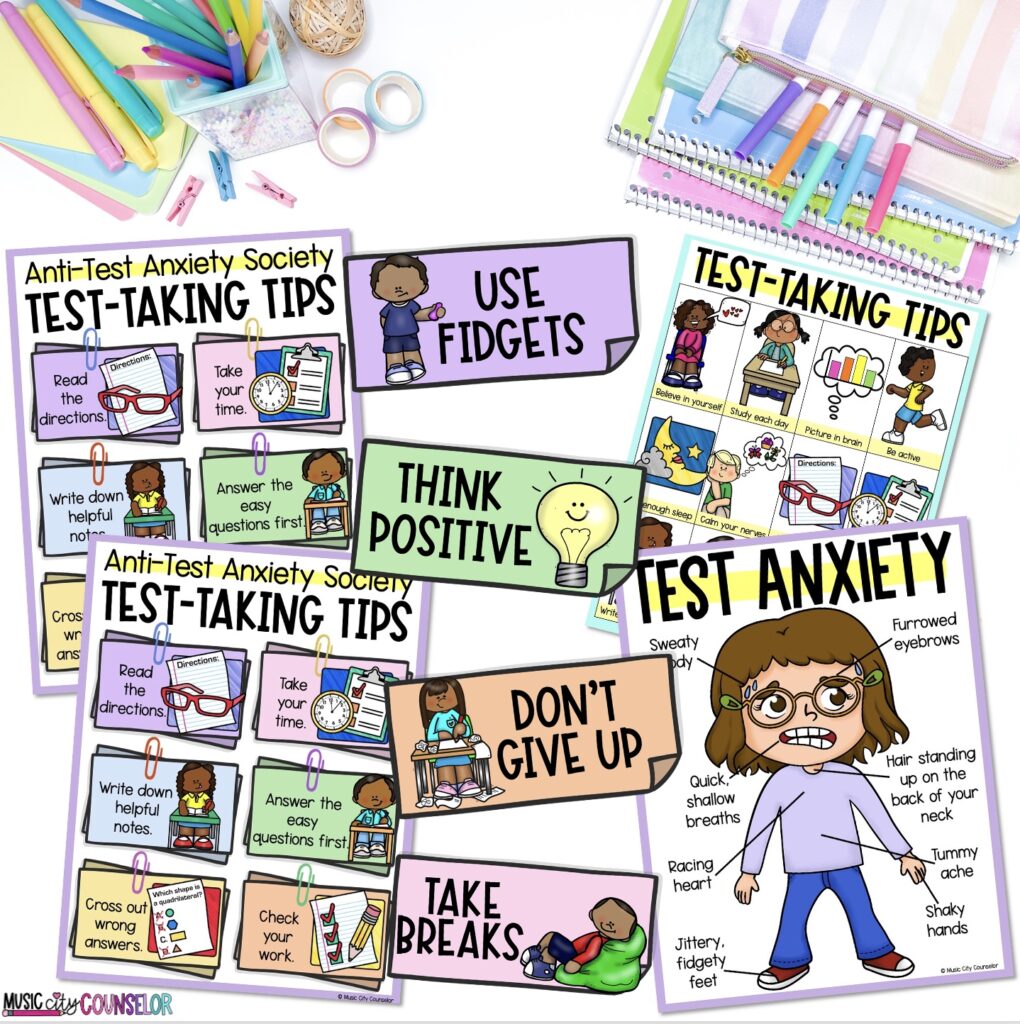
I hope that this post offered helpful test-taking tips and resources to support your students. I wish you and your students the absolute best on the big test – and always!
You may also be interested in:

| Cookie | Duration | Description |
|---|---|---|
| cookielawinfo-checkbox-analytics | 11 months | This cookie is set by GDPR Cookie Consent plugin. The cookie is used to store the user consent for the cookies in the category "Analytics". |
| cookielawinfo-checkbox-functional | 11 months | The cookie is set by GDPR cookie consent to record the user consent for the cookies in the category "Functional". |
| cookielawinfo-checkbox-necessary | 11 months | This cookie is set by GDPR Cookie Consent plugin. The cookies is used to store the user consent for the cookies in the category "Necessary". |
| cookielawinfo-checkbox-others | 11 months | This cookie is set by GDPR Cookie Consent plugin. The cookie is used to store the user consent for the cookies in the category "Other. |
| cookielawinfo-checkbox-performance | 11 months | This cookie is set by GDPR Cookie Consent plugin. The cookie is used to store the user consent for the cookies in the category "Performance". |
| viewed_cookie_policy | 11 months | The cookie is set by the GDPR Cookie Consent plugin and is used to store whether or not user has consented to the use of cookies. It does not store any personal data. |